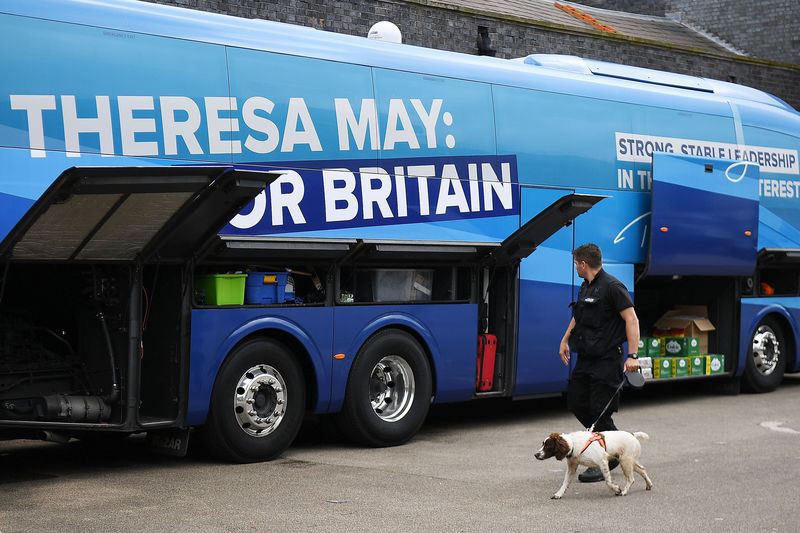By Costas Pitas and Andy Bruce
LONDON (Reuters) - British Prime Minister Theresa May's lead dropped to six percentage points in a poll published on Tuesday, the latest major poll since the Manchester bombing to indicate the June 8 election could be much tighter than previously thought.
A total of six polls carried out since the May 22 Manchester attack have shown May's lead over the opposition Labour Party narrowing, suggesting she might not win the landslide predicted just a month ago.
A poll conducted by Survation for ITV (LON:ITV)'s Good Morning Britain programme showed May's lead had dropped to 6 percentage points from 9 points a week ago and 18 points two weeks ago.
Sterling showed little reaction to the poll, steadying against the dollar after plunging around 2 cents last week.
Sterling is likely to be sensitive to any additional polls showing a tightening race. An ICM poll for the Guardian newspaper will be published later on Tuesday.
May called the snap election in a bid to strengthen her hand in negotiations on Britain's exit from the European Union, to win more time to deal with the impact of the divorce and to strengthen her grip on the Conservative Party.
But if she does not handsomely beat the 12-seat majority her predecessor David Cameron won in 2015, her electoral gamble will have failed and her authority could be undermined just as she enters formal Brexit negotiations.
Strategists at JPMorgan (NYSE:JPM) said the pound could be boosted if a centre-left coalition that supports a "soft Brexit" - whereby Britain maintains a close relationship with the European Union - takes power.
The Survation poll was conducted on May 26 and May 27 in the aftermath of a suicide bombing which killed 22 people in Manchester last Monday and following a government U-turn on unpopular proposals to make elderly people pay more towards their care.
It is still unclear how much Britain knew about suicide bomber Salman Abedi before he carried out the deadliest militant attack on British soil for 12 years. May was interior minister from 2010 to 2016.

The poll found just over half of the 1,009 respondents thought May would make the best prime minister, whilst support for Labour's Jeremy Corbyn stood at just 30 percent, albeit higher than in previous surveys.